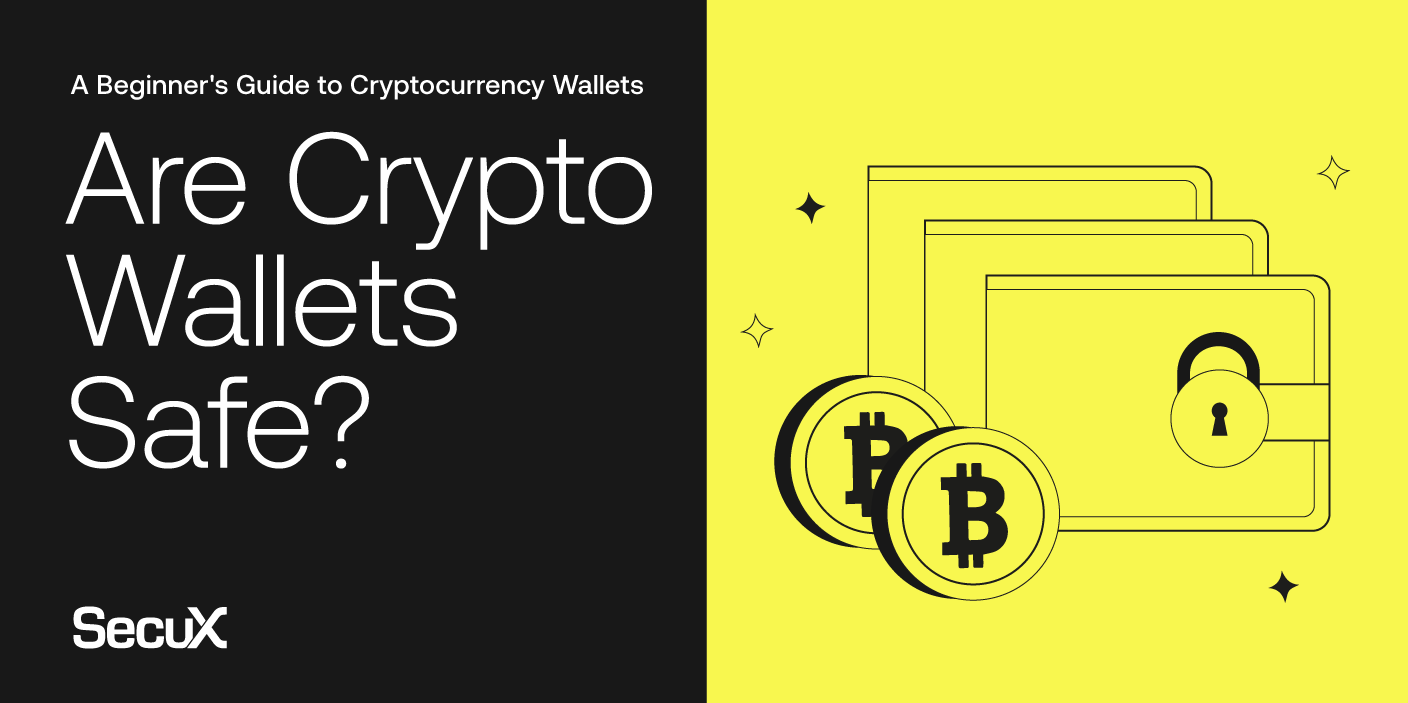
We’ve all heard of the infamous FTX exchange collapse and the loss of many people’s crypto assets with it. Is there a way to store cryptocurrency safely without keeping it in an exchange while ensuring overall security? Luckily, there absolutely is, and the answer is a crypto wallet. There are various types and methods to keep your digital assets safe within the wallet, so let’s find out how.
Table of Contents
- Are Crypto Wallets Safe?
Types of Crypto Wallets
There are three main types of crypto wallets, is there one that’s above all in terms of safety?
Cold VS Hot Wallets
What are cold and hot wallets? A hot wallet refers to a wallet that is always online or connected to the internet. Online wallets are easier to hack. A cold wallet is one that operates offline and is not connected to the world wide web. As it suggests, offline wallets are much safer than the former, while a hardware wallet is the best of both worlds.
Cold Wallet Examples:
Hardware Wallets
A hardware wallet, or hard wallet is a physical wallet. It stores a private key exclusive to yourself (so don’t share it!) to access and can be disconnected and connected to the internet and Bluetooth. In general, it is also the safest type of crypto wallet.
Hot Wallet Examples:
Software Wallets
A software wallet, as opposed to hardware wallets, is easy to use and efficient, but offers less security. There is a possibility software wallets can be hacked and they encompass various types of wallets such as mobile wallets, wallets on browser extensions and desktop wallets.
These wallets are very common because of their speediness. It allows users to easily transfer, swap, trade, and deal with digital currency quickly. There are a lot of people who forgo security for a bit of efficiency.
There is also the chance of hacks on your hot wallets that don’t take place online. Someone can easily gain access to digital currency if you misplace your cryptocurrency wallets.
Mobile Wallet – Exactly as it sounds, a mobile wallet is one that works on your mobile device. It downloads as an app and operates as other applications do on your phone. MetaMask is an example of a mobile cryptocurrency wallet.
Browser Extension Wallet – Also known as web wallets, browser extension wallets are downloadable browser extensions that work alongside your regular browser. It is the fastest and most efficient type of software wallet, but it also poses a lot of risks in terms of hacking. Phantom is an example of this type of wallet.
Desktop App Wallet – We have the desktop wallets which follow the same concept as the mobile wallet – except it is stored on your computer. An example of a desktop wallet app is Exodus.
Paper Wallets
The last type of cryptocurrency wallet is the paper wallet. It’s not really a wallet, it is just your private key written on a piece of paper. This type of wallet is as secure as how the user stores it and is meant for those who don’t plan on regularly interacting with their crypto investments.
Paper itself is not very sturdy and is susceptible to water, fire and other types of damage. There are crypto investors who carve their private keys on pieces of metal (like our XSEED) and store them in a secure safe.
The Safest Type of Crypto Wallet
Which is the safest type of crypto wallet? Hard wallets can be 100% safe if used properly and the seed phrases are kept safe.
How do you find the best wallet for you?
If you aren’t a person that understands how crypto wallets work and don’t plan on actively trading, being a hands-on investor, or intend to hold their assets, a paper wallet could be fine. SecuX works to ensure the safety and security of every transaction – even if you don’t understand how crypto wallets work. Follow us to learn more!
If you want to hold your assets and use them as a long-term investment, then we would suggest cold storage as it is the most secure option.
How to Keep Your Crypto Assets Safe
There are multiple wallets to choose from, but other than picking the one that offers the most security (cold wallets) to keep your crypto safe, here are some other things you can do to ensure the protection of your cryptocurrency.
- Don’t log in to your software wallet using public WiFi (avoid public connections)
- Use a VPN (hide your IP address and protects against DNS leaks)
- Use 2-factor authentication such as fingerprint authentication
- Diversify your investments (don’t put all your eggs in one basket)
- Keep backup private keys in case you lose the first copy

FAQ
What is the safest wallet to keep crypto?
The safest wallet to keep crypto is a hardware wallet. This type of wallet can be connected or disconnected from the internet and is the least susceptible to security threats.
Can crypto wallets be hacked?
No, crypto wallets cannot be hacked if you have a hardware wallet. Software wallets have a higher chance of being hacked.
What are the dangers of crypto wallets?
The dangers of crypto wallets include hacks and scams. The most adept hackers can still possibly gain access to your assets. Keep your private keys private and your wallets in a safe place.
Conclusion
Most experts in the crypto space will tell you that hardware wallets are the way to go if you’re looking for the utmost security. We at SecuX specialize in this type of technology and have a wide array of products that are not only safe but intuitive and easy to use. Check out our heavy-duty product lineup here.
Related Articles:
- What is a crypto wallet? & Which is the best crypto wallet?
- What makes crypto wallets secure?
- How do crypto wallets work anyways?

0 comments